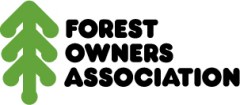PESTS AND DISEASES OF FORESTRY IN NEW ZEALAND
Inoculation Studies with the Cypress Canker Fungus Seiridium unicorne
Date: April, 2002
Author: I. A. Hood and J. F. Gardner
FHRC Project reference: 2000-03
Executive summary:
Glasshouse studies were undertaken to investigate the feasibility of developing a protocol for screening field-selected cypress stock for resistance to cypress canker disease. Seedlings of Cupressus macrocarpa were inoculated with two isolates of Seiridium unicorne by inserting pieces of mycelium in agar culture into wounds made in the stem. Both isolates induced tissue damage in all plants, but degree of virulence varied between isolates, as indicated by extent of lesion development and, initially, by the level of foliage browning. Variation was also found in the degree of susceptibility among a number of families of C. macrocarpa, as determined by lesion length. However, family rankings were not consistent when plants were treated with different isolates of S. unicorne. Tissue damage and foliage browning were more severe at higher temperatures.
A number of challenges affect the potential success of a prospective inoculation screening procedure. These include the reported inconsistency between inoculation runs, a limited understanding of the relationship between field and inoculation results, an imperfect knowledge of the nature of the pathogen populations, and the possibility that resistance may be infrequent among families and clones of susceptible C. macrocarpa. However, confirmation that susceptibility does vary between families suggests that improvement is possible, and further testing of selected cypresses will proceed. Even slight gains in resistance may lead to a reduced disease impact. The inoculation procedure may serve best as a means of checking the resistance of field-selected families and clones.
Full report is available from:
Scion
Private bag 3020
Rotorua
New Zealand

 Farm Forestry New Zealand
Farm Forestry New Zealand

